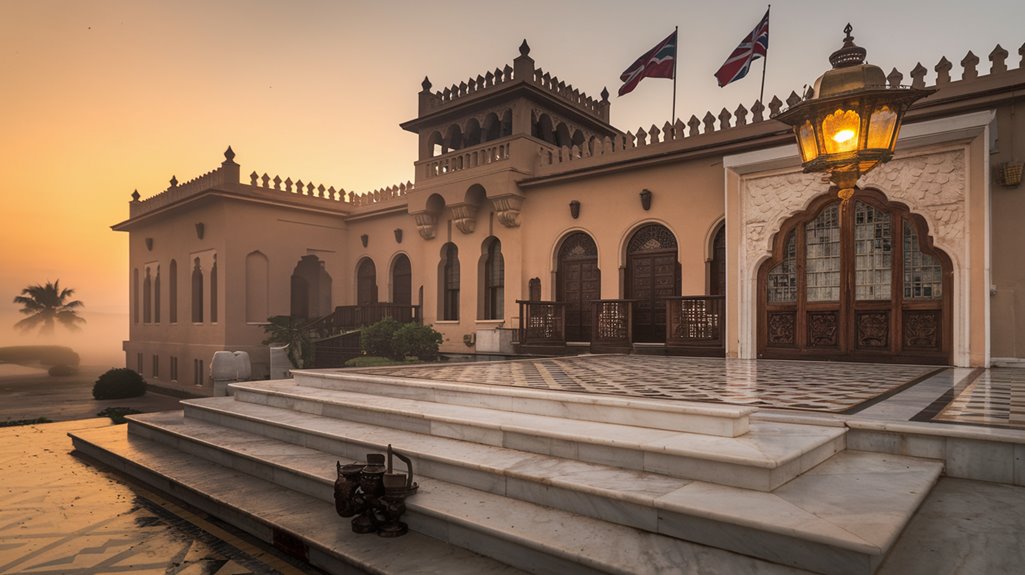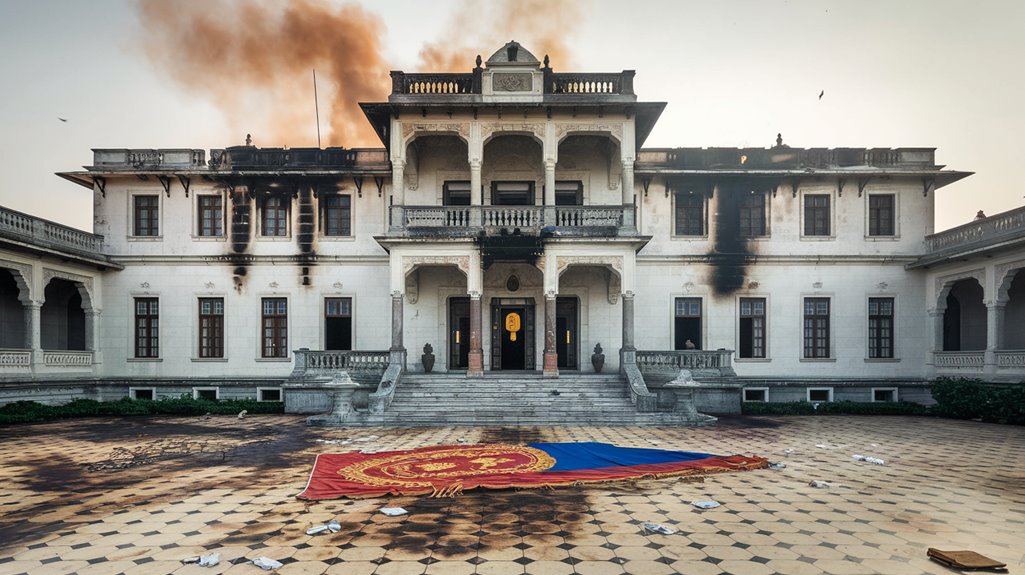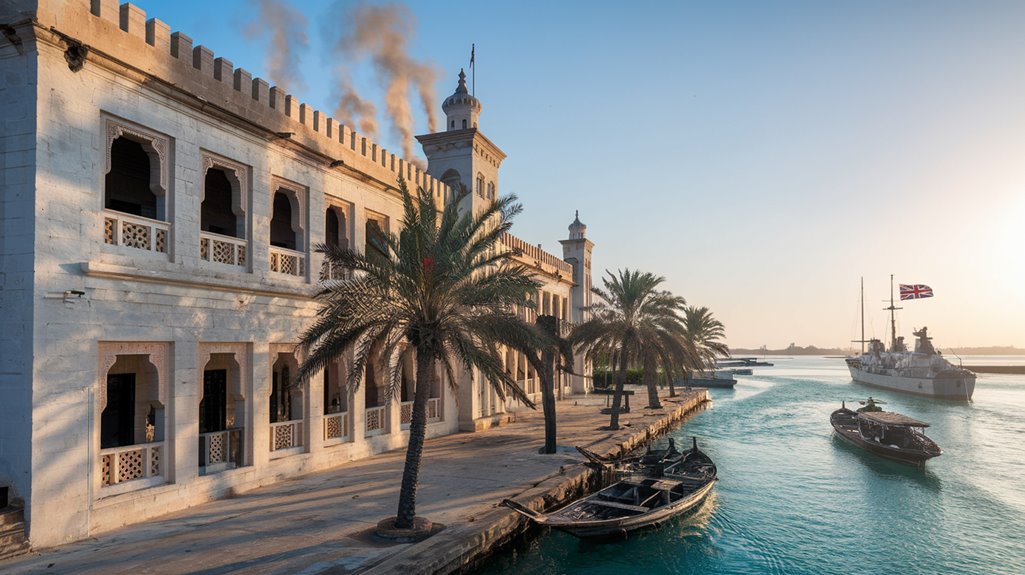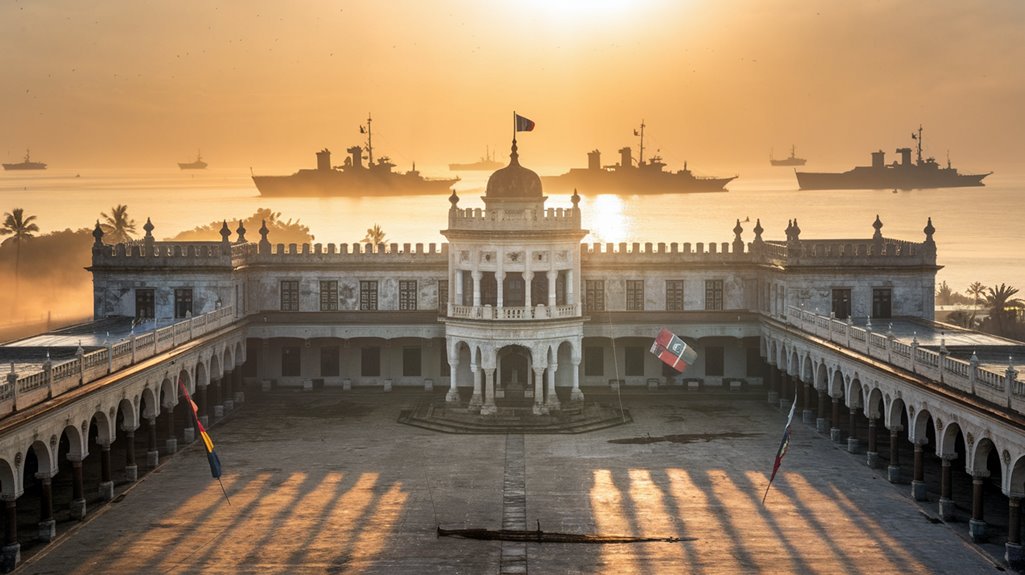The Zanzibar War: History’s Shortest Conflict
You've probably heard of wars lasting years or even decades, but have you considered a war that wrapped up before your lunch break? The Zanzibar War of 1896 holds this unusual distinction, clocking in at just 38 minutes from start to finish. Yet don't let its brevity fool you – this lightning-fast conflict packed enough drama, firepower, and political intrigue to rival longer wars. Behind those 38 minutes lies a fascinating tale of colonial power, royal succession, and military might.
The Path to Conflict: Succession Crisis in Zanzibar

When Sultan Hamad bin Thuwaini died on August 25, 1896, Zanzibar plunged into a succession crisis that would spark history's shortest war.
Two contenders emerged to claim the throne, each representing different visions for Zanzibar's future. Khalid bin Barghash quickly seized power, asserting his succession legitimacy through traditional practices and local support from wealthy landowners and business leaders.
However, you'll find that the British Empire had other plans.
A royal rivalry intensified as the British threw their weight behind Hamoud bin Mohammed, whom they viewed as more cooperative with their modernization agenda. The British Empire's decision stemmed from their economic interests in Zanzibar. This political crisis echoed the deep-rooted racial divisions that would later shape Zanzibar's revolutionary period.
With Zanzibar under British protection, senior diplomat Arthur Hardinge and his deputy Basil Cave worked to install their preferred candidate, setting the stage for a dramatic confrontation that would reshape the sultanate's future.
Military Forces and Battle Preparations
Both sides assembled strikingly disproportionate forces for the looming conflict.
The British naval strategy centered on five warships, including HMS *St. George* and HMS *Philomel*, commanded by Rear-Admiral Rawson. You'll find it interesting that while Sultan Khalid gathered around 3,000 defenders with a mix of artillery and even armed bicycles, their military preparation was largely improvised. The defenders had access to one Gatling gun among their varied artillery pieces. The conflict erupted at precisely 9:00 AM when British forces commenced their bombardment.
Key elements that shaped the ground tactics:
- 900 pro-British Zanzibari askaris, led by Brigadier-General Mathews, were strategically positioned at the customs house.
- The British naval contingent included 150 marines and sailors under Captain O'Callaghan's command.
- The defenders set up machine guns and artillery in front of the palace, with the royal yacht HHS *Glasgow* providing harbor support.
The stage was set for history's briefest war.
The 38-Minute War: A Minute-by-Minute Account
As dawn broke on August 27, 1896, the British naval forces took their positions for what would become history's shortest war.
The battle's historical significance stems from its remarkably efficient military strategy, lasting just 38 minutes from the first shot to the last.
At precisely 9:00 AM, when Sultan Khalid failed to respond to their ultimatum, British warships opened fire.
You'd have witnessed an overwhelming display of firepower as the ships launched approximately 500 shells, complemented by over 4,100 machine gun rounds and 1,000 rifle rounds.
The British forces consisted of three cruiser ships and two gunboats, positioned strategically in the harbor.
The bombardment set the palace ablaze, forcing Khalid to flee.
By 9:38 AM, the palace lay in ruins, with roughly 500 Zanzibari casualties.
The conflict resulted in the complete destruction of the HMS Glasgow, the Sultan's only warship.
The British had achieved their objective, securing complete control of Zanzibar by afternoon.
The Final Bombardment and Sultan's Escape
The final bombardment of the Zanzibar War unfolded with devastating precision as British naval forces released their firepower on the Sultan's palace. The bombardment effects were catastrophic, with the palace and harem catching fire while approximately 500 Zanzibaris lost their lives or suffered injuries.
You'll be amazed by these staggering details:
- The entire conflict lasted just 44 minutes, from 09:02 to 09:46
- British forces consisted of only 2 cruisers, 3 gunboats, and 1,050 combined personnel
- The sultan's flight to the German consulate marked his final moments of power
As flames engulfed the palace, British sailors formed a fire brigade to prevent the blaze from spreading to nearby customs sheds. The conflict emerged after Sultan Khalid bin Barghash's refusal to step down following the British ultimatum. The British had issued their demand at eight in the morning on August 27th, giving Khalid limited time to respond.
The war concluded with Hamud bin Muhammed's installation as the new sultan, while British Sikh troops patrolled the streets to restore order.
Legacy and Impact on British-Zanzibar Relations

Following Britain's swift victory in the world's shortest war, dramatic changes reshaped Zanzibar's political landscape for decades to come.
You'll find that Britain's colonial influence grew considerably as they installed Hamoud bin Mohammed as a puppet Sultan and established firm control over the territory's affairs.
Under British oversight, you'd see major social reforms taking shape. The new Sultan banned slavery in 1897, while the British introduced modern infrastructure and education systems. Stone Town's sanitation saw significant improvements during this period of reform.
Their diplomatic relations were strictly one-sided, with British residents effectively governing the territory until 1963. The conflict began when Sultan Khalid's refusal to step down from power prompted immediate British military action.
The war's legacy extended far beyond its 38-minute duration. It marked the end of local resistance in East Africa and symbolized the peak of British imperial power.
Even after Zanzibar gained independence in 1963, the impact of British control continued to influence its international relations.











